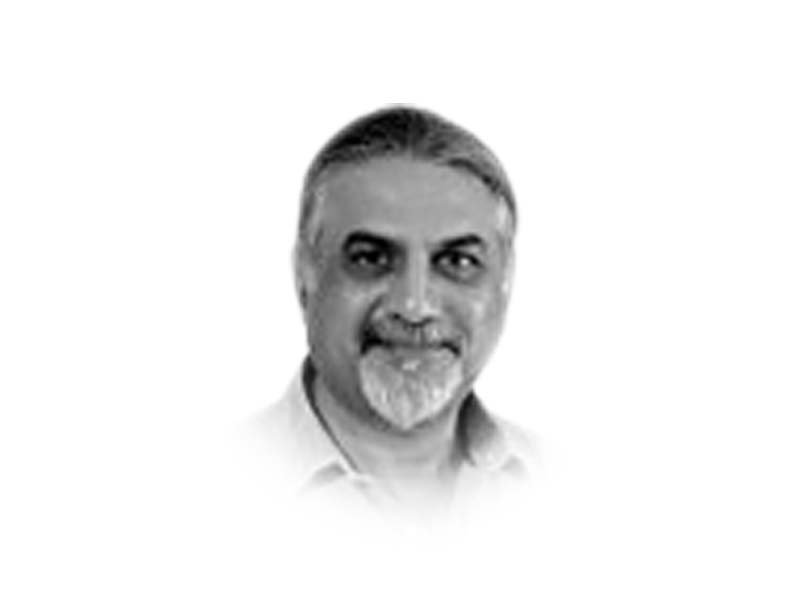
The past week has seen the Supreme Court of Pakistan challenge the performance of the PTI government and admonishing it for keeping a large-size cabinet yet not producing results that the court thinks should be satisfying. The Supreme Court also challenged the appointment of Dr Zafar Mirza who currently serves as PM’s Special Assistant on Health. The Sindh government also got a taste of Supreme Court’s displeasure on its not so clear and transparent way of extending help and support through the distribution of funds and rations to the neediest people in the province.
Decision-making is a process and not an end. Constant change and adaption (complete or partial lockdown) has to be the companion of any strategic decision-making if it has to succeed. When a political decision is shared and goes out in the public the gravitational pulls of external environment (people denied their means of earning) and strains of opposition’s politics (Punjab doing better than Sindh or vice versa) start affecting the decisions that attempt to smoothly chart its strategic course. What we need to realise is that the goal and the objective will always be clear (preventing spread of disease) and sellable but it is the distribution of the means available and the uncertain paths that the achieving strategy takes that make the original decision-making very vulnerable. Therefore, in a fluid situation like the one confronted due to coronavirus, the decision-makers and the policymakers must remain open to adaptation and change and reviewing the strategy employed to support the decision should not be taken as a ‘U-turn’ or a shame.
To solve a problem like the coronavirus pandemic it needs to be tackled essentially at three levels — policy, technical and political. What is to be done is to be determined by the policymakers, how it is to be done requires input from specialists, both in advisory and implementation roles, because these are the people who know how to tackle the problem. The most difficult tackling is at the political level where the mass which is socially, politically and religiously divided needs to cooperate. The ‘tacklers of the problem’ at all three levels must adapt and change basing on the vibes that come back as a great feedback loop that they must attach with their means of achievement of goals. If the feedback says that the distribution of funds and rations is not transparent than a more fair and transparent method must be adopted.
We cannot think of future if we cannot understand our present. The only way we can understand our current position, circumstances and the services and the welfare that people demand is when we recognise how we have reached the present. It is the knowledge of the past political performance that makes us credible or not so credible in the eyes of the public. So if any political party carries a mark on her forehead reading ‘corrupt’ than the public will never consider it as a ‘tackler of the problem’ but the problem itself. I sympathise with Mr Murad Ali Shah, the Sindh Chief Minister, but unfortunately the political baggage he carries is too heavy. For over seven decades politics in Pakistan failed to recognise that “economic opportunities are not only for the elite but for the broad cross-section of society”. Our failure is mutual — politics, military, judiciary and the society all-inclusive. To understand this failure let me take you 240 years back in history.
In 1680 Barbados in the West Indies was an English colony. The English government conducted a census there and it revealed that out of a total population of 60,000 almost 39,000 were African slaves (who were still the property of the remaining one-third of the population). The slaves were largely the property of 175 ‘sugar planters’ who also owned most of the land. The courts there never objected to the sale of the slaves or contracts that the sugar planters wrote and so the slaves never got political reprieve or social justice. The reason was that out of 40 judges and justices of the land, 29 were large sugar planters themselves. And, the 8 senior most military officials were also large sugar planters. It suited the English politics to keep Barbados in its existing political and social shape. Two-thirds of Barbados population was slaves with no education or economic opportunities and the colonists never provided them the incentives to use their skills.
Our roots of the problem are also political. Colonised by our elite, we like the slaves of Barbados have been unable to break free. Our country in general but Sindh in particular has failed to build its capacity to regulate and govern it. If it is being done, it is done with utmost difficulty. Politics in the past in Pakistan has failed to make mass (popular) decisions, it has only indulged in mass coercion. To what end was politics used if even after 240 years there is striking similarity between us and the slaves of Barbados.
What has plagued strategic decision-making in Pakistan? Why didn’t we examine political, military and economic strategies that failed and learn from them? Running a country is like fighting a war — you cannot start it without knowing what to achieve by it and how to manage and conduct it.
I just heard that Senator Raza Rabbani has written a letter to the Senate Chairman requesting him to hold a ‘Senate Session’ to discuss the coronavirus pandemic. I also heard that a request has also been made for provision of chartered airplanes to bring in the senators from far-flung places to Islamabad. The senator has highlighted that “critical ministers and departments handling the coronavirus are under special assistants to Prime Minister and are not members of the Parliament”.
The entire country knows but Senator Raza Rabbani doesn’t that Parliament in Pakistan today is not a body that represents how decisions are made — it only showcases how decisions are plagued and not made.
Published in The Express Tribune, April 19th, 2020.
Like Opinion & Editorial on Facebook, follow @ETOpEd on Twitter to receive all updates on all our daily pieces.


1732085354-0/insta-(1)1732085354-0-165x106.webp)

1725366721-0/kyle-(1)1725366721-0-165x106.webp)






COMMENTS
Comments are moderated and generally will be posted if they are on-topic and not abusive.
For more information, please see our Comments FAQ